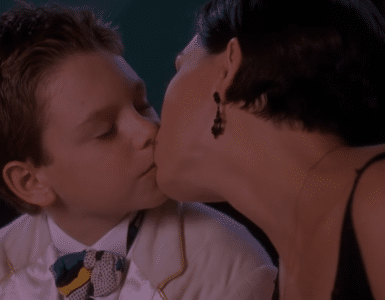It’s normal to want to give your child the best. You want them to have everything you didn’t have, especially if you grew up in a household with limited income.
Of course, it’s understandable if you grew up facing financial struggles and later become wealthy and well-known, you might feel the urge to make up for lost time by overspending, particularly when it comes to your children. But how much is too much and can overly lavish gifts actually damage a child’s development?
Rapper Jay-Z grew up in a housing project in Brooklyn, New York, and is now worth over $1 billion! He and his wife Beyoncé are known for spending lavishly on their children, including buying them expensive jewelry, designer clothing, and even an $80,000 diamond-encrusted Barbie doll!
Former pro soccer player and co-owner of two soccer clubs, David Beckham grew up in a working-class household. His parents both worked hard to provide for their family. But once David became rich and famous, he no longer had to worry about scrimping and saving. He bought a £600,000 (722,099.40 USD) painting for his daughter’s first birthday!
Even people who grew up having it all tend to overspend on their children, thinking that it’s a good way to show that they care.
Kylie Jenner was born into one the most social-media-famous families in the world and has never wanted for anything. Once she had kids, she continued her family’s tradition of excessive spending. She loves showering her daughter, Stormi, with lavish gifts including a custom diamond necklace, a $12,000 Hermès backpack, and over $20,000 in luxury brand shoes when her daughter was only 5 months old!
These celebrities might think that spending tens and even hundreds of thousands of dollars on their children is simply giving them the best in life. But buying too many material things for your child, and always buying them anything they want, can negatively impact their mental and social development, and even cause mental health problems when they get older.
Hindering a Child’s Emotional Development
Buying your child the entire toy store is not going to make them happier. In fact, it can stunt their emotional development since they won’t learn how to handle frustration and disappointment.
They also won’t learn the importance of working hard and waiting to get what you want. They will grow up thinking that all they need to do in life is snap their fingers and they can have it all. It’s not realistic, not even if that kid ends up inheriting billions of dollars. During their life, even the Elon Musks of the world have to deal with not getting what they want and feeling disappointed by something.
ALSO: You Should Encourage Your Teen to Travel After High School
Kids who don’t learn how to handle these emotions in a healthy way when they’re still young, will have a much harder time learning than when they become teens and adults. This can have many negative consequences including having problems at school, not being able to maintain long-lasting and healthy friendships and relationships, and not being able to cope with the realities of daily life.
Creating a Lack of Gratitude
Kids who receive too much without having to work for it may have a hard time developing gratitude and appreciation for the things they have. Without gratitude, your child will not be able to appreciate what they have and be happy with the present moment, they will keep seeking and wanting and never feel fulfilled.
Making Kids Too Materialistic
When a child is given a bunch of stuff, they’re brought up to believe that material possessions are the same as love and that having stuff is more important than relationships, friendships, family, love, experiences, and spirituality.
This will leave them with a big hole inside of them that they will try to fill by acquiring more material objects. But sense of feeling incomplete cannot be satiated with money. You need to go on a self-journey and focus on the things that money cannot buy in order to truly feel fulfilled and complete.
Limiting a Child’s Creativity
Many studies have shown that having too many toys can hinder a child’s creativity and focus. When a child has a flashy toy that talks and does a bunch of other things, it gives them less motivation to use their imagination and creativity. Kids are more passive when they play with these kinds of toys.
Even if a child is not surrounded by electronic toys and is instead surrounded by a bunch of traditional toys, they will end up playing with each toy for a few seconds or minutes at most, dropping it and moving on to the next toy. Kids who are presented with fewer toys will play with those toys longer and will use their creativity and imagination more.
Hindering a Child’s Social Development
Overindulging children with material possessions can prevent them from developing important social skills, such as sharing, cooperation, and empathy.
It could also lead to a sense of entitlement where they won’t consider the needs of others and will not care how their actions affect people. This can negatively affect their relationships with their friends, peers, family, and future partners.
Creating Financial Dependence
Children from all income brackets aren’t taught proper financial literacy and independence. This is even more true for those born into wealth. Lots of trust fund kids who end up inheriting vast sums of money once they become adults end up blowing their entire inheritance in a short amount of time because they were never taught how to manage their finances.
This is not just a problem for the kids of oil tycoons, even non-wealthy parents who buy their kids everything they want will have a hard time getting their kids to become financially independent when they become adults.
While splurging on your child once in a while is not going to ruin their life, it’s important to be mindful of the values and habits that you instill in them, especially during the first six years of their development.
What children value most is feeling loved, feeling safe, spending time with you, and having fun, which does not cost anything.









Add comment